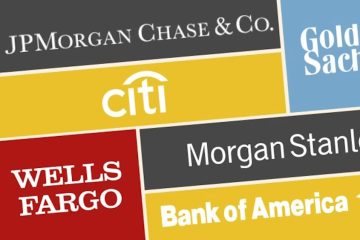The Cool Factor Isn’t Important to Barclays

Barclays aims to increase its focus on European investment banking and the United Kingdom, two topics that have recently garnered less support from investors than any other.
Despite dismal financial figures for 2023, the bank’s stock rose about 6% on Tuesday. As part of a larger strategy overhaul and cost-cutting drive, the company promised shareholders at least £10 billion (or about $12.6 billion) in dividends and buybacks between 2024 and 2026, despite a 6% decline in pretax earnings. Investors were ecstatic with the news.
The stock price of Barclays is about 0.4 times its tangible book value, which is lower than even the depressed Deutsche Bank. Its previous boss’s connection with convicted sex offender Jeffrey Epstein and a $361 million hit caused by workers inadvertently issuing more structured notes than permitted are among the missteps that haven’t helped.
However, a more fundamental problem exists: of the major European banks, only Barclays competes with the trading behemoths on Wall Street. Investment banking accounted for an impressive 44% of its total income in 2023. In terms of percentages, only Morgan Stanley and Goldman Sachs were more forthcoming. Barclays and UBS were the sole European banks to make it into the top ten worldwide for mergers and acquisitions and equity deals last year, according to Dealogic.
Since the financial sector has been heavily regulated since 2008, investors have shown a preference for wealth and asset management organizations. These businesses need less money and produce consistent, high returns. Those more lucrative areas accounted for 53% of Morgan Stanley’s 2023 income, despite the fact that it is a large investment bank. Two times the tangible book value of Barclays is what its shares is trading at. Wealth management is another area that UBS has prioritized.
Europe is a particularly unpopular place for investment banking due to stricter regulations and the fact that smaller firms lack the resources to compete successfully with Goldman Sachs. Edward Bramson was an activist investor who threatened to seize control of Barclays’ investment bank from 2018 until 2021. During the pandemic dealmaking and trading frenzy, fees skyrocketed, but investors wrote them off as too risky. Surprisingly, trading revenues dropped by 24% in 2023, proving their point.
Another issue is Barclays’ domestic market, which is responsible for 30% of its revenue. After being rocked by Brexit, the British economy has lagged behind other wealthy nations in the past few years.
From 58% now, the investment bank should account for approximately 50% of risk-weighted assets in 2026, according to the business. Additionally, the group pledged to improve the distribution of income and speed up the expansion of its wealth business.
However, C. S. Venkatakrishnan, CEO, is adamant that his investment bank maintain a size sufficient to compete directly with American firms. Over the past few years, the division’s market share has been steadily increasing. In 2023, we secured the title of top U.K. investment bank. He told analysts during his strategy presentation on Tuesday that this is a championship they should always strive for.
If the one-time effect of expense cuts had not been taken into account, Barclays’ return on tangible equity would have surpassed the critical 10% mark once again in 2023. With such large reported rewards, that seems like a good enough reason to buy the company. To be meaningful, underlying profitability requires less frequent occurrences of “one-off” snafus, lawsuit costs, tax rises, and charges.
The world’s wealthiest people aren’t a viable customer base for every bank. However, you must truly deliver if you wish to remain uncool and yet achieve success.
Julie Young
Julie Young is a Senior Market Reporter and Analyst. She has been covering stock markets for many years.







